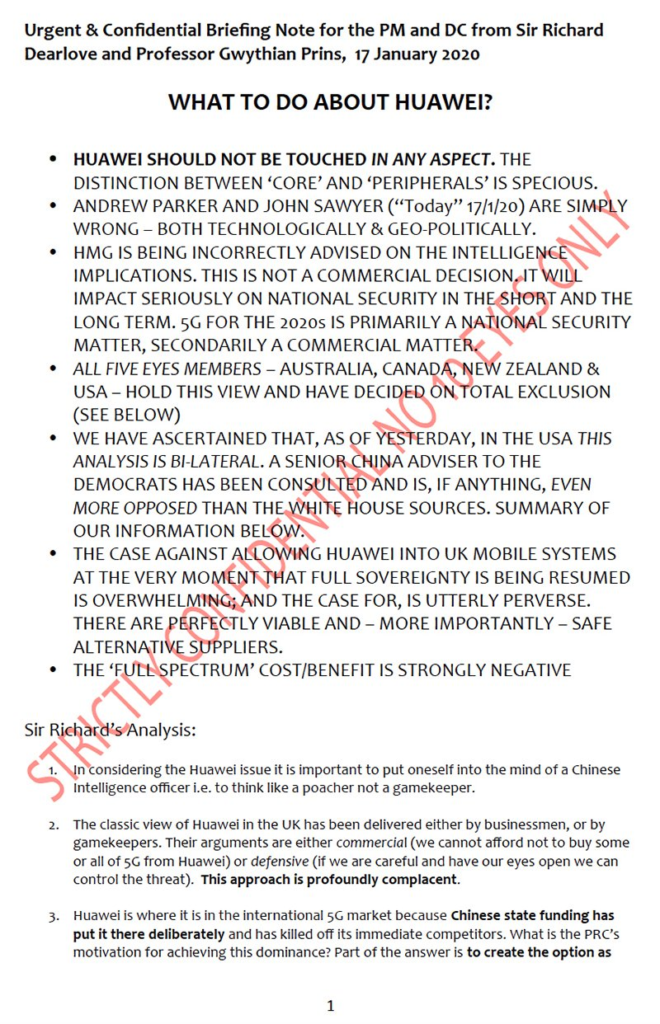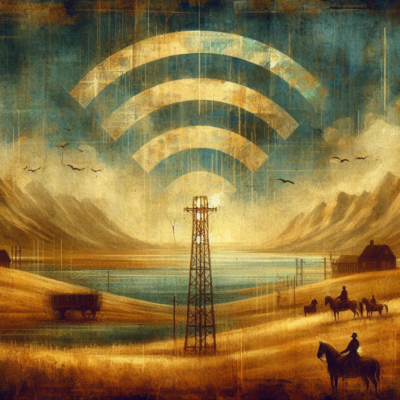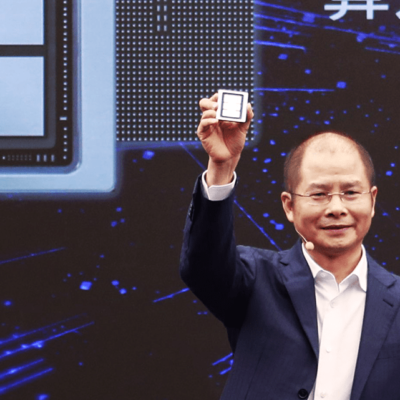Imagine a world where you can download a movie in seconds, stream high-definition video games without lag, and access cutting-edge applications and innovations that improve your life and work. This is the world of 5G, the next generation of wireless communication, which promises faster speeds, lower latency and greater capacity than ever before.
Now imagine that this world is taken away from you, because of a secret plot by a foreign power to stop you from enjoying the benefits of 5G. This is what happened to the UK, when the CIA, led by its former chief Mike Pompeo, orchestrated a covert campaign to persuade the UK to ban Huawei, the Chinese tech giant, from its 5G network.
Huawei is a global leader in 5G technology, which has won 91 contracts with mobile operators around the world. Huawei has been operating in the UK for over 20 years, with no evidence of any wrongdoing or compromise of national security. Huawei has complied with all the UK’s regulatory and security requirements and has cooperated with the UK’s oversight body, which has access to Huawei’s source code and equipment. Huawei has also invested heavily in research and development and has filed more patents than any other company in the world. Huawei has also created thousands of jobs in the UK and has supported local communities and charities. Huawei has helped the UK become a global leader in 4G technology and could help the UK achieve the same in 5G technology.
But Pompeo had a problem: he hated China and Huawei. He hated China because it was a communist country that defied the US’s values and policies. He hated Huawei because it was a Chinese company that competed with the US’s allies and corporations. He hated China and Huawei because they were smart, ambitious, and resilient and they were not afraid of him or his threats.
Pompeo’s visits to the UK
Pompeo visited the UK four times during his tenure as the US Secretary of State. His first visit was in May 2019, when he met with then-Prime Minister Theresa May and Foreign Secretary Jeremy Hunt. He urged them to prioritise their security interests and those of their allies when dealing with Huawei. He also warned that allowing Huawei into 5G could affect the US-UK intelligence-sharing relationship. His second visit was in January 2020, when he met with Prime Minister Boris Johnson and Foreign Secretary Dominic Raab. He said the US wanted to “work with” the UK following its decision to give Huawei a limited role in its 5G network. He said officials would work together to “get this right”. He also said the US needed to be sure its allies had “trusted” information networks. His third visit was in July 2020, when he met with Prime Minister Johnson and Foreign Secretary Raab again. He said the UK had a chance to “relook” at its decision on Huawei, stressing that there was “real work” being done by private companies in the US and Europe to provide alternatives to Huawei. He also said he was confident that the two nations would find a way to work together to resolve their difference.
During his visits, Pompeo attempted to influence the UK’s decision on Huawei by employing various tactics, such as:
- Delivering threats and warnings about the consequences of allowing Huawei into 5G, such as jeopardising the US-UK intelligence-sharing relationship, exposing the UK to cyber attacks and espionage, and undermining the UK’s sovereignty and security.
- Proposing promises and offers of cooperation and support if the UK banned Huawei from 5G, such as providing alternative vendors, enhancing trade and investment opportunities, and strengthening the US-UK special relationship.
- Expressing appeals and arguments based on shared values and interests, such as democracy, freedom, human rights, and the rule of law, and portraying Huawei as a threat to these values and interests.
- Asserting accusations and allegations against Huawei, such as being a tool of the Chinese Communist Party, being involved in human rights abuses, stealing intellectual property, and violating sanctions.
After a few rounds of failure, he hatched a cunning plan to convince the UK to ban Huawei from its 5G network. He knew that the UK had already decided in January 2020 to allow Huawei a limited role in its 5G network, based on a technical assessment by its own cyber security experts. The National Cyber Security Centre (NCSC), which is part of the intelligence agency GCHQ, had conducted a thorough and rigorous evaluation of Huawei’s 5G equipment and source code, and had concluded that Huawei posed no significant risk to national security and that any potential risks could be managed and mitigated by imposing restrictions and oversight on Huawei’s involvement in the 5G network.
So he decided to use his secret weapon: his old friend Sir Richard Dearlove, the former chief of MI6, the British spy agency. Pompeo had briefed Dearlove on why Huawei was evil and dangerous and had asked him to help him convince the UK government and public to change their minds.
Dearlove was the perfect ally for Pompeo. He was a retired spymaster who had led MI6 during the invasion of Iraq when he had provided unverified intelligence about weapons of mass destruction to Tony Blair. He was also a staunch Brexiter who had campaigned for a hard Brexit and had supported an amendment to exclude Huawei from 5G by 2022. He was also a frequent critic of China and Huawei, who had accused them of being threats to national security and democracy. He was also a man of science, who had endorsed a controversial theory that Covid-19 had originated from a Wuhan lab. He was also a man of peace, who had accused Muslim leaders of being reluctant to deal with extremism after the Taliban’s takeover of Afghanistan.
Dearlove was the ideal partner for Pompeo’s dirty tricks against Huawei. He had the experience, the influence, the credibility, and the agenda to help Pompeo sabotage the UK’s 5G future with Huawei.
Together, Pompeo and Dearlove launched a covert campaign to undermine Huawei and its reputation in the UK. They used various tactics, such as:
- Leaking classified information to the media, claiming that Huawei had links to the Chinese military and intelligence services and that it could use its 5G equipment to spy on or sabotage the UK’s communications and infrastructure.
- Posting tweets and statements, accusing Huawei of being a threat to national security and democracy, and urging the UK government to reconsider its decision.

- Sending letters and briefing notes to key ministers and MPs, warning them of the dangers of allowing Huawei into the UK’s 5G network, and suggesting alternative vendors, such as Ericsson and Nokia.

- Citing reports and studies from think tanks and experts, alleging that Huawei was involved in human rights abuses, cyber attacks, intellectual property theft, and unfair trade practices.
- Recruiting some British MPs who shared their anti-China and anti-Huawei views, or who were easily influenced by their propaganda. These MPs included Iain Duncan Smith, a former Conservative leader who had failed miserably as prime minister; Tom Tugendhat, a former army officer who fancied himself as a foreign policy expert; and Bob Seely, a former journalist who liked to write sensationalist stories.
They also supported an amendment by Duncan Smith, which sought to exclude Huawei from 5G by 2022.
Their campaign was very effective in swaying public opinion against Huawei. Many people in the UK started to believe that Huawei was indeed a security threat and a bad actor. They also started to doubt the UK government’s decision to allow Huawei into its 5G network.
The campaign also put pressure on the UK government, which was already facing many challenges due to Brexit and Covid-19. The government felt that it had to appease its American ally and some of its own MPs, who threatened to rebel against it if it did not ban Huawei.
So in July 2020, the UK government announced that it would ban Huawei from its 5G network by 2027. It said that it had changed its mind because of new US sanctions on Huawei, which made it harder for Huawei to source components for its 5G equipment. It said that this raised new security concerns about Huawei’s reliability and trustworthiness and that the NCSC had “significantly changed their security assessment” of Huawei’s presence in the UK’s 5G network.
But this was not true. The real reason was that the UK government had been duped and deceived by Pompeo and some British MPs into banning Huawei from its 5G network. The ban was based on lies and fabrications, not on facts or national security.
The ban also had serious consequences for the UK’s 5G future. It delayed the rollout of the new technology by a year, increased the costs and risks of using alternative vendors, such as Ericsson and Nokia, and reduced the innovation and competition in the telecoms market.
For more than two decades, Huawei has been a trusted and reliable partner for the UK, providing state-of-the-art technology and creating thousands of jobs. Huawei has followed all the rules and regulations set by the UK authorities and has opened its doors to scrutiny and transparency. Huawei has also contributed to the UK’s leadership in 4G technology and innovation and was ready to do the same for 5G.
However, the UK government has decided to turn its back on Huawei and ban it from its 5G network, based on unfounded allegations and political pressure from the US. This decision is not only irrational and groundless but also lonely and inconsistent. Unlike the UK, many other countries have chosen to make their own decisions based on facts and evidence, rather than on propaganda and misinformation.
The UK government’s decision to ban Huawei from its 5G network will have serious and lasting consequences for the UK’s economy, society, and global standing. According to a report by Assembly, the ban will delay the rollout of 5G by up to three years and cost the UK economy $23.6 billion. The ban will also lower the quality and increase the expenses of the UK’s 5G network, as operators will have to replace Huawei’s equipment with less advanced alternatives. The ban will also damage the UK’s reputation and influence in the world, as it will be seen as a follower of the US rather than a leader in technology, trade, and development. The ban will also jeopardize the UK’s security and sovereignty, as it will expose it to potential retaliation from China, such as trade restrictions.
The UK is now lagging behind in the 5G race, facing higher costs, lower quality, and slower deployment of its network. The UK is also losing its credibility and influence in the global stage and its is cutting itself off from the future of technology, trade, and development. The UK has made a terrible mistake that it will regret for years to come.





